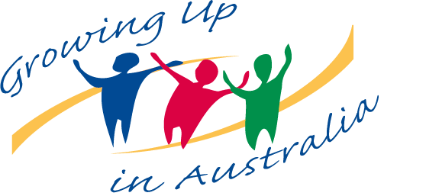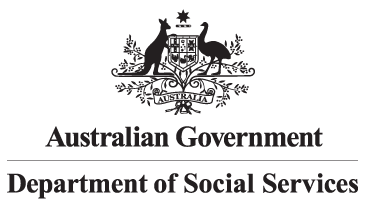Recent publications
These recent publications used LSAC data in their research.
- Association of in utero antibiotic exposure on childhood ear infection trajectories: Results from a national birth cohort study
Hu YJ et al. (2021)
Journal of paediatrics and child health
This paper investigated associations between antibiotic exposure in the womb and incidence of ear infections during the first 10 years of life. It found that antibiotic use in pregnancy increased the risk of persistent and early childhood ear infections. - Associations between meeting 24-hour movement guidelines and academic achievement in Australian primary school-aged children
Watson A et al. (2021)
Journal of sport and health science
This study tested connection between academic achievement and meeting 24 - hour movement guidelines using the LSAC CheckPoint data. Results indicate that there was a significant difference between those that met the guidelines and those that did not only when analysing data obtained via the self-report. This difference was not observed when measured via accelerometry. These results support the notion that limiting recreational screen time is important for improving literacy achievement and that numeracy achievement benefits from encouraging compliance with the moderate-to-vigorous physical activity (MVPA) guideline. - Associations of caesarean section with body mass and waist circumference trajectories from age 2 to 13 years: A nationally representative birth cohort study in Australia
Begum T et al. (2021)
Pediatric obesity
Study investigated the link between C‐section delivery and obesity paths during childhood and found that C‐section birth significantly increases the risk of having an accelerated obesity trajectory in children. The results support the idea of only using the C‐section for absolute clinical causes and early institution of preventive approach can reduce the obesity burden among children delivered through C‐section. - Balancing time use for children's fitness and adiposity: Evidence to inform 24-hour guidelines for sleep, sedentary time and physical activity
Dumuid, Dorothea et al. (2021)
PLoS ONE
The authors of this study investigated the optimal daily activity levels that would result in highest fitness and lowest obesity levels using the Child Health Checkpoint data. They conclude that optimal time was different for fitness and obesity levels and recommend more movement and shorter sleep (3.4 hours of movement and 8.25 hours of sleep) to increase fitness levels and more sleep (10.9 hours) and a bit shorter movement (1hr) to maximise the benefits with regard to weight management. - Do risk factors for adolescent internalising difficulties differ depending on childhood internalising experiences?
O'Connor M et al. (2021)
Social psychiatry and psychiatric epidemiology
This study examined whether children who internalise difficulties continue to do so in adolescence and if the impact of risk factors on adolescent mental health was different depending on whether children internalised difficulties in childhood or not. It found evidence of the continuation of internalising of difficulties from childhood to adolescence, but no statistical evidence of the impact of adolescent risk factors being different depending on whether the children had internalised difficulties in childhood. - Dynamics of Mental Health and Healthcare Use among Children and Young Adults
Butterworth, Peter et al. (2021)
Australian Economic Review
This paper summarises a study that investigated the utilisation of mental health treatment by adolescents and young adults and found that an increasing number of young people are utilising prescription medication as they get older, younger cohorts are accessing prescription medication earlier, and that disadvantaged groups and those living in areas with better access to mental health services use medication more than those that do not. Additionally, they find that young people facing personal and emotional problems rely on support from friends and family over professional help. - Looking backwards and forwards: tracking and persistence of weight status between early childhood and adolescence
Hayes AJ et al. (2021)
International journal of obesity
This study investigated the trajectory of child BMI over time and whether there are demographic predictors that explain those who are tracking highly. It found that under 7 years could be an ideal time for interventions to reduce overweight, and that programmes in schools that aim to prevent obesity should be especially designed for those from lower socioeconomic and CALD communities, as well as for girls. - Multiple imputation methods for handling missing values in longitudinal studies with sampling weights: Comparison of methods implemented in Stata
De Silva, Anurika P et al. (2021)
Biometrical Journal
This paper aimed to shed slight on how the sampling weights and multiple imputation (MI) for dealing with missing data should be used together in longitudinal studies. It recommends the use of multivariate normal imputation (MVNI) with the design stratum as a covariate in the imputation model. However, if this is missing, using a sampling weight as a covariate is acceptable as well. - Parental Gambling as a Moderator of the Child Delinquency–Gambling Relationship: Does Having a Role Model in the Home Make a Difference?
Walters, Glenn D. (2021)
Journal of Gambling Studies
This paper examined whether parent’s gambling habit impacts on child delinquency and gambling involvement. It found that the likelihood of child delinquency and gambling involvement grew in proportion to how much their parent was involved with gambling activities. - Parent-reported Autism Diagnostic Stability and Trajectories in the Longitudinal Study of Australian Children
May T et al. (2021)
Autism research: official journal of the International Society for Autism Research
This study explored the stability of parent‐reported diagnosis of Autism Spectrum Disorder (ASD) and matters impacting the trajectories those LSAC Study Children with parent-reported diagnosed ASD. The findings support the notion of early diagnosis in managing emotional and behavioural issues resulting from this condition and point out the importance of providing adaptable services to the needs of those with diagnosed ASD, as these are likely to change over time. - Sleep problems, internalizing and externalizing symptoms, and domains of health-related quality of life: bidirectional associations from early childhood to early adolescence
Williamson AA et al. (2021)
Sleep
The study examined how poor sleep impacts on quality of life and found a connection between behavioural sleep problems in childhood and later health-related quality of life (HRQoL) psychosocial and physical impairments. The results point towards the importance of attending to both sleep problems and HRQoL to prevent progression of internalizing conditions and further indicate that focus on externalizing concerns could help preventing these symptoms, sleep problems and HRQoL getting worse in particular during the transition to school. - Socio-ecological predictors of non-organized physical activity participation and decline between childhood and adolescence
Kemp, Byron J et al. (2021)
Journal of Sports Sciences
This paper examined the predictors to the decline of Physical activity (PA) during late childhood and adolescence. It found that low socioeconomic position and sugary drink consumption at 11 years old were strong predictors of the decline. It recommends that strategies promoting PA target females and those from lower socioeconomic position. - The effect of parental smoking on children's cognitive and non-cognitive skills
Srivastava P; Trinh TA (2021)
Economics and human biology
The paper examined whether parental smoking has an impact on children’s cognitive and non-cognitive development. It found that parental smoking results in worse development outcomes in children. The findings suggest measures aiming to get parents to reduce or stop smoking may have positive externalities in terms of improving children’s cognitive and non-cognitive development, and long-term labour market outcomes. - The importance of self‐regulation: a mediator of early socio‐emotional difficulties on later socio‐emotional and relational outcome
Nucifora, Alice; Walker, Sue (2021)
Journal of Research in Special Educational Needs
This study examined a potential connection between a childhood diagnosis of Autism Spectrum Disorder (ASD) or Attention Deficit Hyperactivity Disorder (ADHD) and poorer teacher–child relationship quality and higher rates of externalising behaviours. It further investigated whether self‐regulation skills and language ability mediated these relationships. The authors conclude that self‐regulation is a protective factor for those diagnosed with ASD and other disorders with associated socio‐emotional problems such as ADHD. They further suggest educational programs that focus on self-regulation skills have the potential to potential to improve socio‐relational outcomes for all children with socio‐emotional difficulties. - Youth sport participation and parental mental health
Sutcliffe, Jordan T.; Kelly, Peter J.; Vella, Stewart. (2021)
Psychology of Sport & Exercise
This study explored the relations of having a child involved in youth sport and parental mental health. It found that Parents whose adolescent children were involved in organised sport reported more life stress, more time pressure, and less psychological distress than parents of non-athletes. These findings were stronger in parents of primary school aged children compared to parents of secondary school children. - An investigation of the link between prenatal alcohol exposure and sleep problems across childhood
Chandler-Mather N et al. (2020)
Drug and alcohol dependence
This paper examined the association between dose and frequency of prenatal alcohol exposure (PAE) and sleep problems in children. Established risk factors for sleep problems were controlled. It found that children whose exposure to alcohol during pregnancy was considered heavy had significantly more reported sleep problems across childhood (2-9 years) compared to children whose mums did not drink during pregnancy. - Vaccine sentiments and under-vaccination: Attitudes and behaviour around Measles, Mumps, and Rubella vaccine (MMR) in an Australian cohort
Toll M; Li A (2020)
Vaccine
The study aimed to examine the consistency in factors associated with attitudes towards vaccination and MMR vaccination status. It found that vaccine attitudes largely corresponded with MMR vaccine outcomes. It results promote the idea of designing policy that targets subgroups with consistent or inconsistent vaccination attitudes and behaviour.
LSAC Data Users newsletter

Keep up-to-date with LSAC news for data users.
Sign up to our email alert service.






